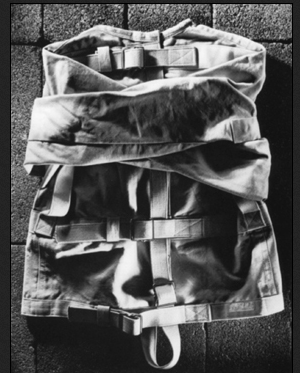
I think we need to renegotiate the terms…
One of the reasons I did such a detailed post about the pop culture and how it’s impacting artists (A Culture Addicted to FREE) is that for us to make any solid plan, we need to gain a good understanding of how things are being run and also grasp current consumer habits.
To fix any problem, we must be aware of what are called operational constraints.
Operational constraints are any real or potential roadblocks in the way of our goals. If you ever do a S.W.O.T. Analysis, which I strongly recommend, it stands for Strengths, Weaknesses, Opportunities and Threats. Any time we do business—which writing IS a business—we need an accurate picture of the terrain so we make wise business decisions and can plan ahead.
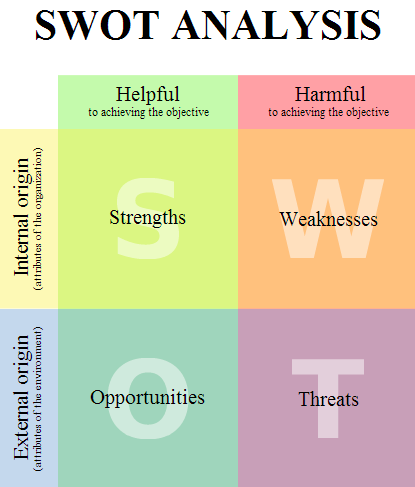
Image via Wikipedia
The entire reason for me blogging about the impact streaming could have on our industry is because that is part of the S.W.O.T. matrix (under Threats). If we only look at what’s going on today, we’re reactive and have fewer options (if any) and we lack maneuverability. If, however, we do the projections and hypothesize about what likely could happen? We’re in a far stronger position and can gain massive advantage.
For instance, in 2007 I took MAJOR heat for saying social media and blogging was going to be a huge game-changer and vital for success.
I could have been wrong, but I planned accordingly and built a brand anyway (just in case).
For all those who felt all they needed was a good book? Who didn’t feel they needed to be on-line? It’s been an uphill battle and they missed out on a LOT of the crazy momentum generated by the initial BIG BANG of Web 2.0 expanding. They were also in a bad spot when literary agents came back with, “Great book. I’d love to rep it but you have no platform. Come back when you get one.”
Yes, Writers ARE Entrepreneurs
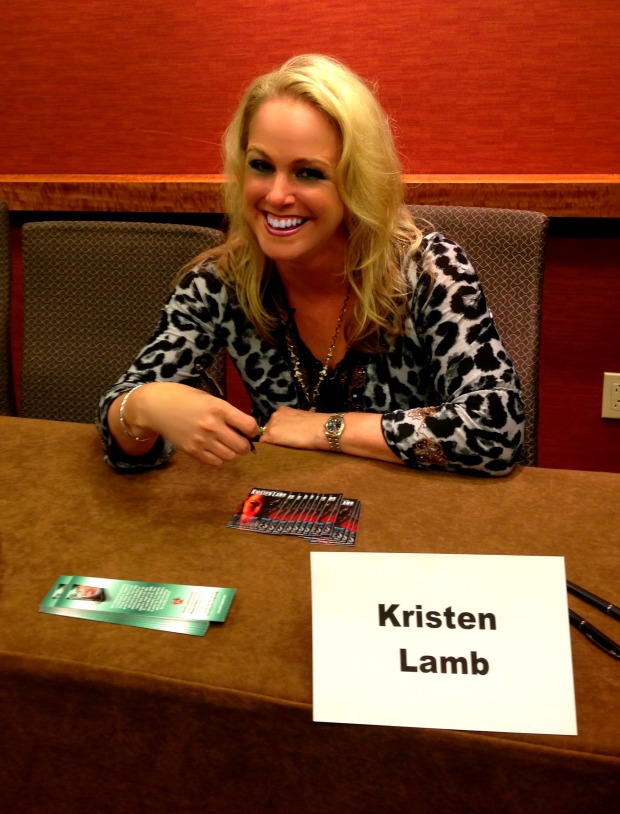
I get that the world often does not see what we do as a business, that for some reason when we tether money to our work then we are no longer doing “art.” Here’s the thing, haters hate for two reasons.
Either a) they benefit from the status quo or b) they believe they are unsuccessful solely because of a system they falsely think is set in stone. Anyone who changes the system can expose the delusion.
For instance, before self-publishing it was easy to believe we were rejected simply because NY only wanted commercial junk (not because we had no frigging clue how to actually write).
Ignore haters. They aren’t going to pay your bills so they don’t get a vote.
Before we talk more about the nitty gritty of the business of what we do, I am going to say this again.
Free is an excellent servant, but a horrible master.
I am all for FREE. I am against the rampant misuse of FREE. FREE will roll over and sit and fetch our slippers. Problem is? We have been letting FREE pee on the carpets and eat the couch cushions. FREE needs obedience training and we are the master. Us whining that FREE keeps embarrassing us by humping the mailman’s leg is not productive.
Writer up and tell FREE to SIT!
Businesses use FREE all the time…to generate business (as in PAID work). We need to do the same. But good businesses don’t just “make stuff FREE.” They get a good idea of the overall topography and then use FREE to maneuver advantage.
If we want to change things and make a good living doing what we do, then we must understand the market to use FREE effectively. Additionally, us looking at streaming and how other artists are being impacted negatively is not whining if we then take that knowledge and do something.
ALL business do this. But apparently when authors act like a business we are accused of whining…which is pissing me off more than a little.
We don’t get what we work for, we get what we negotiate.
My family owns the top sign company in Fort Worth, TX. We do those huge monument signs, lighted signs (think Target, Home Depot, Chili’s, etc.). But we’ve had customers we had to fire. Doing business with them simply was not profitable. Were we whining? No, we were making a business decision.
We decided that the customer’s Pain in the Ass Factor far outweighed their Profit Factor and decided to part ways and find a situation that suited us better. Writers can do the same.
At this juncture, we as artists have two options when it comes to changing our situation in the marketplace. One is what we have been doing here lately.
Power of the Purse
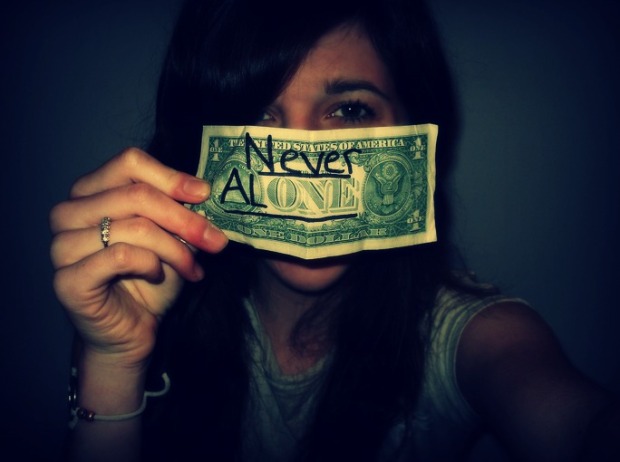
Image via Demi-Brooke Flickr Creative Commons
We educate consumers and use consumer pressure to make the market equitable. That happens all the time. Nike got seriously bad PR for using sweatshops in Asia. The bad press did major damage to their brand and their sales. Feeling pressure from consumers, they had to change their ways unless they wanted to go out of business. Spotify, Pandora, and iTunes have come under scrutiny for exploiting artists.
Fearing consumer wrath? These companies will either change or the power of the purse will exact punishment.
It’s happened before in many other industries.
Food Lion never recovered from a scandal involving bleaching old meat. Taco Bell was hammered (and sued) over their use of Mystery Meat, which gave their brand and bottom line a beating. The chocolate industry was forever altered when consumers found out about the horrific practices and use of child labor. Many major chocolate manufacturers are now almost completely Fair Trade and this was all brought about by consumer pressure.
If shaming and purchasing power works for these other industries? Can work for ours too. But? It might not. So we need to prepare for that.
In the meantime, we are a business so we need to focus more on what we can control.
We Create Something of VALUE
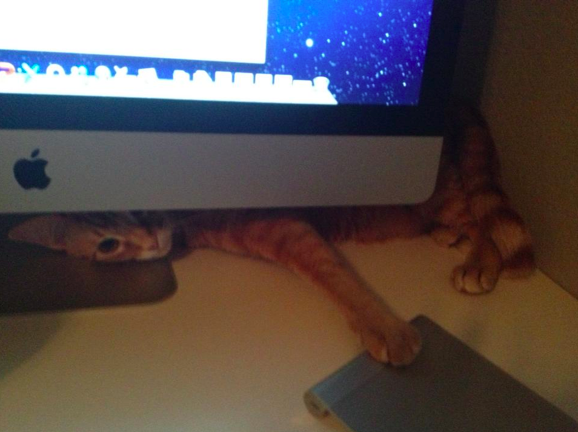
Johnny Cat wants to write his memoir…
Before we can talk at ALL about business I need you to get one thing through your head.
Writers create something of VALUE. We create what people WANT.
I get that folks are addicted to FREE, but they will pay for something they find value in. Our job is to create that value and stop abusing FREE. But why do we struggle with believing what we do has value? A lot of it comes from outside pressure.
One example that I keep seeing used over and over since I started all this with Pay The Writer is the idiot example of a ditch digger.
Just because you decided to dig a ditch doesn’t mean anyone owes you money for a ditch they never asked for.
This is a non sequitur being used to shame us. It is using a false assumption that no one wanted what we created in the first place.
To paraphrase what the Founding Fathers said to King George?
Bite me.
IF no one wanted stories, then why bother with bookstores, movies, television and non-stop streaming entertainment? If no one wanted to buy books then Amazon would have never set up the infrastructure to take business away from the Big Six and make them into the Spiffy Five. If no one wants books, then how the hell are so many selling? The Martian (which was self-published, btw) sold 750,000 copies just in the US and MATT FREAKING DAMON played the protagonist in a blockbuster movie.
I guess it’s a good thing Andy Weir dug that ditch no one asked for.
Basic rule of capitalism? We all create something people don’t want…yet. The thing is our customers simply don’t yet know they want it.
What if Henry Ford never bothered with figuring out how to manufacture automobiles because no one wanted them?
If I had asked people what they wanted, they would have said faster horses.”
~Henry Ford
What if Edison hadn’t bothered with light bulbs? What if the Wright Brothers….
Y’all get the point.
People DO want books. They DO want an escape. They DO want information and entertainment. Trick is to make them want OUR book (that’s another post).
People WANT books, so anyone who uses that ditch digger analogy from now on can just pound sand because the analogy falls apart that writers creating books are anything like this ditch digger creating random holes.
A true parallel is that places like Amazon are acting as connectors/brokers. They know people who LIKE and WANT books and we MAKE books. We do business because every book Amazon moves and delivers for us? We get paid a portion of that.
This is like having a service that connects People in Desperate Need of a Ditch with People with Shovels and Ditch-Digging Skills. There’s an understood contract that if we dig a ditch someone wanted? The broker is paid, but WE ARE TOO.
And, as an owner of a sign company? We get paid really, really well for digging ditches.
Thus, to treat writers as if we are that weird guy who jumps out into traffic and squeegees windshields and then breaks windows if the customer victim doesn’t pay? It’s uncool and inaccurate.
But back to writers…
I don’t think any of us are asking to be paid on books we never sell. But if we do sell? Then whoever is acting as this middleman/connector needs to give us a rate we find to be a sound business decision or…
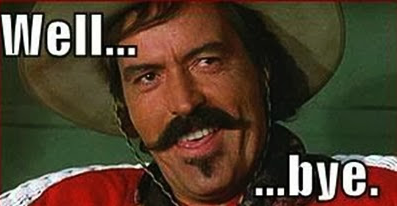
Musicians are doing this. They are saying that getting paid $0.0006 every time a song is played and having to split that $0.0006 per song with everyone who produced the song is BS. They’re saying that if my song is played a million times, the royalty should be more than $17…so Pandora? BUH BYE.
Start With the PRODUCT

BLUE STEAK. But look how CLEVER it is! Really, it’s YUMMY.
Since we are a business, we have to create a product consumers want to buy. In my POV? A lot of authors are too busy being clever in their writing and ignoring substance.
We just want a good steak…no need to make it blue. That’s just weird.
And for all the Wanna Be Authors who are slapping up junk with crappy unedited writing, shoddy formatting and covers that look like they were done by a one-eye drunk? No one wants it. And if they do? I’m a huge fan of Economist F.A. Hayek. If people want to PAY for that? Then it is just.
If people want to pay $300 for a ticket to see Kanye West but won’t go to see a concert pianist even though it’s only $20? I question their taste, but it’s just because consumers have spoken with their dollars.
If people want 50 Shades and not the next great literary genius story? I don’t like it, but people vote with dollars.

Aaaahhhhhhhhh!
But if the product isn’t selling? Then we’ve failed on some vector and the first one to scrutinize would be the actual product.
Code for try harder.
Write more books and better books. Remember we are not writing for US, but for the reader. We are in the entertainment industry and entertainment implies that more than one person is getting something out of the deal.
I’ve been in workshops where the author was the only one who understood what the hell was going on and when criticized by the audience? They argued. Okay, then be happy selling ONE book because you’ve written for an audience of one.
Invest in good editing, formatting, etc. Yada yada yada.
Create Your Own Economy
The trick of all of this is to create a product consumers want (and ALL businesses have to do this). If we do that and we build a strong enough brand? We don’t NEED iTunes, Amazon, B&N, etc. Thing is, they need us way more than we need them.
Trust me. Amazon does NOT want Andy Weir or Hugh Howey or Grant Cardone to go, You know what? It’s not you, it’s me. Wait, it IS YOU and I think I’ll do my own distribution. Thanks.
The Sword of Technology Cuts Both Ways
The same exact technological innovations that allowed Amazon to plunder the Big Six are the same advances we can use to walk away. We can do our own distribution, our own subscription services, streaming, etc. (there are services popping up to fill that vacuum). We will talk more about these options later, but the point I am making is that if we create a good product and combine it with a solid brand?
We are being a business and in being a business? We can choose how to do business and thereby set the terms of the relationship (or the grounds for terminating that relationship).
In coming posts we will delve more into FREE, how to use it and when to use it. We will talk a lot more about the business side of what we do. Remember we are in the entertainment business. If you don’t have a strong brand, then seriously, get a copy of Rise of the Machines.
I wrote that book because a solid brand is absolutely the most essential component of success beyond the actual product. My methods have launched unknowns from obscurity into record books. So invest in your business and get in the know about your brand.
Okay, what are your thoughts? Are you tired of that ditch-digger analogy too? Do you struggle seeing yourself as having something of VALUE? Is it impacting the way you are running—or not running—your business? Are you overwhelmed? Are there other areas you’d like me to explore and discuss? Do you have additional business advice you’d add for all our benefice?
I really DO love hearing from you!
To prove it and show my love, for the month of FEBRUARY, everyone who leaves a comment I will put your name in a hat. If you comment and link back to my blog on your blog, you get your name in the hat twice. What do you win? The unvarnished truth from yours truly. I will pick a winner once a month and it will be a critique of the first 20 pages of your novel.








51 comments
9 pings
Skip to comment form
Since I did not point a gun at my head after your last post, I have started seriously working on my marketing plan and doing a lot of reading on how to make it as an author. I AM NOT done yet! I think reading Rise of the Machines again (which I have on Kindle) needs to be added to my to-do list for this week. I have also been talking to a friend of mine about becoming my personal assistant and sales and marketing staff. (commission basis). LIke you said, it is all about taking control and letting people know that I have what they want.
Author
I was pretty down as well. At the time I felt overwhelmed until I did more research and saw ways that we can beat them at their own game. I KNEW our product and brand were at the core of the solution but had not yet wended my way TO the solutions…until I spoke to a friend of mine I really admire and he shared some innovations with me that mean we don’t NEED Amazon, B&N, iBooks, etc. Don’t get me wrong, I like being there, but it needs to benefit BOTH of us.
I agree. That’s why I have started my newsletter! I realized it was time for me to build my own customer base. Also, I have been doing more marketing of my books as physical copies instead of just trying to peddle the ebook. A friend of mine wrote about how print books will outlast e-books http://hubpages.com/literature/Self-Publishing-Tips-Why-Your-Print-Book-May-Outlive-Your-Ebook
Great info!
Loving all your blog posts Kristen. I’m not sure how I stumbled upon you but I”m sure glad I did. I just bought Rise of the Machines and can’t wait to devour it. Thanks for sharing all your knowledge.
Author
((HUGS)) Thank you!
I love your posts, Kristen and am a huge fan. Your classes are fabulous and Rise of the Machines is a go to. I guess that I’ve got most out of building a brand is be consistent, show up, be a lover not a hater and keep writing. Pushing yourself to be on social media is hard work. I hope to build an audience one person at a time, even if it starts with Aunty Shirl. 🙂
I find the ditch-digging analogy not just insulting, but also incredibly illogical.
So what if Person A went out and dug a ditch that no one wanted. It doesn’t mean that if Person B decides he’d like to have a ditch that he should go out and *steal* the one from Person A.
The people that make the ditch-digging analogy, or similar ones, are trying to justify downloading intellectual property illegally.
Great post!! Thanks for the uplift!
Great post Kristen. Am usually a silent but enthusiastic reader but thought I’d pipe up to say-well done, thanks for speaking for all of us. And also I do think there is a business/smart marketing way to use FREE to our advantage and very much looking fwd to your thoughts!
Reblogged this on Travels with Mary and commented:
Great post!
You mentioned the music industry and how technology has changed it. Well, Sunday night at the Grammy Awards, they made a speech about just that. They said we needed to buy music or pay for a subscription to streaming services so new artists like “Joey” (who had just played a beautiful piano piece and was the youngest Grammy nominee) could someday make a living. (Completely paraphrasing here.) They even had a huge illustration of a penny with a little piece cut out to show how all the artists were getting short changed.
Curious, I went to Twitter to see the response. Many of the comments were, “Sorry, Joey, I like my free music” or the more typical, “Yeah, pleading for money from the common man for a room full of millionaires.” Education is certainly key, but *this* is what all artists are up against. Not sure of the answer, but thanks for trying to educate people.
Link: http://www.billboard.com/articles/news/grammys/6875399/recording-academy-president-neil-portnow-common-target-streaming-grammys-speech-2016
Author
They can keep acting that way and when they raze artists to the ground then who will be sad? At one time, people like this thought there would always be millions of buffalos too, so why not shoot them thousands at a time for sport? Asshats are always alive and well.
Exactly.
Great article!
I agree completely. I hate seeing authors begging to give a book away free. And I would like to shake the authors sitting, hands folded in lap, shoulders slumped and please please buy a book from me written all over their face. And who told writers that at a conference with 4000 attending that if you sold 4 books you did good? If you have a book that is published and have it for sale stand tall smile an luring smile that says I’m your best friend and you’re going to be so glad you stopped and bought my wonderful book. Looking forward to hearing more on this topic.
Great post, Kristen. Love your statement: “The trick of all of this is to create a product consumers want (and ALL businesses have to do this). If we do that and we build a strong enough brand? We don’t NEED iTunes, Amazon, B&N, etc. Thing is, they need us way more than we need them.”
It’s true. To make it work, we need to understand the process of managing new-era writing for pay in a world of free. It starts with producing the best work we can, designed for a specific audience. Then we set a price, get our work in front of our audience, and leave it up to them.
They buy, or they don’t — either is fine. That’s the way a marketplace works.
Price your work. Some of it will be free, because it’s advertising. Most of your work will have a price.
Some of it will sell. Figure out why it sold, and do more of that kind of work.
It’s a hard life, but it’s also way EASIER than it has ever been for writers to make a good living.
It all starts with self-belief. It takes a certain amount of intestinal fortitude to slap a price on your writing. Do it. 🙂
Man or woman up, and just DO IT… because you CAN. And should.
“Writers create something of value.” You need to define what a writer is first. Part of the problem may be that so many “writers” self-pubbed so much drivel that readers got burned. No wonder so many were given away. Readers can download dozens of books for their Kindle for free and try to find something of value. Good luck with that.
I’ve read RotM twice and think you’re spot on. The only way to have a chance in this game is to build a brand. You have to be in this for the long haul.
Looking forward to seeing where you go from here!
Author
Yes, but I think the dregs are going to make it easier for those of us who write really well. People are tired of crap, so when they DO find authors they love? They will stick like SUPER GLUE and tell everyone about it.
I found myself nodding and agreeing with everything you wrote. Great article!
Did you see Chuck Wendig’s post at terribleminds today? He talked about Huffington Post and all the “free” pieces they get from writers….. His conclusion: it sucks.
Author
Oh man, I JUST saw it. And GAME F%$&ING ON! Next post. In the meantime, tweet it and boycott the bastards. I am using the #BoycottHuffPo to spread the word. Sharpening my battle ax now.
Oh, the humanity!
I’ve been enjoying this great and relevant topic, and I think it’s fitting that writers use writing to win this battle to be paid what we’re worth. Thanks for all you do and keep it coming!
Picturing Ben Franklin and Tom Jefferson saying “Bite me” to King George. *doubles over laughing* And the king brings out his wooden teeth…or wait, that was George Washington.
Writers need to be more business-minded. It’s part and parcel of being an entrepreneur. And not the part my creative brain likes, thank you very much.
Thanks for this, Kristen. This is something I really need to learn more about. I am an artist, as well as a writer, and I have found my images for sale on poster sites from China. Time to learn to protect my work and become more of a business person. First step? I’m going to read “Rise of the Machines”.
Reblogged this on Marie Banville and commented:
This is a great post on a blog that takes a look at the business side of writing. I’m taking baby steps to building a platform for my writing and art but there is so very much more to do. The difficulty is, with limited time available, how much time should one spend on marketing before the “product” is even complete. Apparently, publishers want to see a platform and a rapt audience raving about your upcoming book before they accept it for publication. Seems an ass-backwards sort of idea. But that’s the reality these days. Sigh.
I’m going to go way more in depth on my blog because I feel bad writing books in your comments but…you did as our opinions.
Let’s start with digging ditches and other whining accusations. Though I’ve never used the ditch digging analogy, I can see where it is applicable with the worry over KU. KU needs good books. Having a million books no one will ever read will not help them. Anyone upset that they aren’t getting paid when no one reads their books might as well be digging ditches no one wants.
Having spent a decade of my life in a job that required me to track and increase sales, I have never seen free work. Lots of people take advantage of free. People love free. But it doesn’t have much of an impact for the producers. There are far better ways of increasing sales that will make people buy, making something appear free, for example.
A lot of people talk about how writing is a business but few follow that thinking all the way through. It’s usually reserved for marketing talks for a work that’s already written. Or in building your brand. Let’s say you build an amazing platform but then write a book no one wants to read. You’d could have watched cartoons that whole time and ended with the same result.
Few people will tell you to write romance even though that is where the overwhelming majority of fiction income is found. Few people will tell you to write religious fiction though it was (as of 2014) the third highest selling genre. Writing for a specific genre with the intention of making money is selling out. It’s not real writing.
What else…Oh, in the olden days, when someone’s book wasn’t picked up by a major publisher and the author would complain about NY only wanting commercial writing, the writers weren’t wrong. Bad fiction didn’t sell for the same reason good, but weird, fiction didn’t sell. NY was looking for commercial writing. That’s not a bad thing. They wanted to sell books so they could make money. It was/is their job. Writing is a business and businesses have to make money to stay in business.
People talk about the big 5 buying things they think will sell like it’s a bad thing. But is anyone trying to get a book contract hoping their book never sells? Of course not, that’s asinine. What NY did, and still tries to do, is find books people will buy. Indy and self published authors should be treating their own work the same way if their goal is to make any money. You need a product people want to buy.
Reblogged this on The Ranting Monkey and commented:
Gonna talk about this in my next post. Read it while I type.
I see your point, and thank you for making it so eloquently. Reading between the lines (and with the criticism of sites like HuffPo), this applies to articles submitted online, too; not just novels? Because one of the things I struggle with is finding a balance between gaining exposure, writing to support friends, and trying to see commercial value in what I write and share in public. Do you think the grey area is detrimental, or does it still count as ‘platform building’ and hold almost a kinetic value for the future?
This is an insightful look into an all-too-pervasive phenomenon! I look forwarding to reading more you have to say on the subject.
Shellie
http://www.thefabjourney.com
Fantastic post as usual.
Reblogged this on authorkdrose.
Tough thing. Well said. As a creative it’s hard to think with a business mind, but the making a living part of the equation cannot be ignored.
Thank you for taking on this subject. I feel like I have been whispering into the wind for all that my own kids listen to me and then go and pirate music and movies online. New rule, I dock their allowance, so they end up paying for it after all! I finally got myself a copy of Rise of the Machines and I am looking forward to learning more. You are such a deep well of information, thank you for sharing!
I’m not a writer, I’m a business person and I found this post very spot on; attention bleeders..put some bandaids on those hearts and join the rest of us …selling a little out..or selling nothing..don’t hate the players..hate the….
Reblogged this on Nancy Segovia and commented:
Some great points made and, as usual, she does not disappoint her readers
An excellent blog, as usual, and I loved your point about making free your tool not your master.A book about Snookie? *facepalm* Seems everyday, I ask myself what is this world coming to?
Bought your book and will be delving into the wisdom soon. Joined WANATRIBE and look forward to making connections. I struggle to find time to write, so finding time to develop brand and to market is tough. I will find a way. One thing stuck with me from an earlier article you wrote, I don’t remember your exact words, but the gist is-just do it. No matter how tired you are, no matter how difficult it is, just do it. Of all the words I’ve read by you and others, that stuck with me.
Like many others here, I’m an emerging writer trying to build a platform (and hopefully business) for myself so I find your posts such excellent and helpful reading. Although I understand that giving away your work for free at times is clever marketing, I always remember the words from one of my writing mentors (a very savvy best-selling author) – if you don’t think your work is worth paying money for, neither will anyone else.
Best post of the year, ma’am! Thus is exactly the straight-forward, no-nonsense advice every author needs to hear. Sharing on FB and Twitter!
WOW! I’ve been blasted, but agree with everything you said. And the few times I’ve tried the free thing, it really didn’t work for me. Looking at prices of books comparable to the ones I published, I’d say it’s far better to stick with an honest, appropriate price. People can understand value.
Reblogged this on Writer's Treasure Chest and commented:
I think this is an excellent blog post, written by Kristen Lamb. She is such a gain for writers who are beginners – and probably many more as well. I admire her deeply!
Reblogged this on Wind Eggs and commented:
Too many author’s assume they have to promote their books by giving them away free. Kristin suggests why this is a big mistake.
I think it’s okay to give away short stories to promote your novels, if you choose. But you should never feel compelled by a web site or promotional agency to give away your work.
Hi – recently submitted work on spec to a magazine that is listed in Writer’s Market as paying market. They want one of my pieces, but are saying that they are not currently paying for “non-commissioned” work and would I consider “donating” the piece to the magazine…!?! Am I being taken advantage of or should I let it go and insist on at least a contributor copy (I’m still emerging writer and trying to get as many publications as possible).
What do you think?
Author
That isn’t paid work and that’s (my POV) uncool of them to be listed in the “paying market” area. But, if you are new, you may need the publication credits to beef up your reputation. Just have to consider the advantages and disadvantages of publishing there. With I had a better answer :/
Hi Kristen, thought I would follow up on this…I did send a politely worded email declining to give them the work for free – a few days later they sent me a contract for payment 🙂
Yay!!
Author
Freaking AWESOME!!!!!!!
Reblogged this on American Writers Exposed.
Reblogged this on Pearls Before Swine and commented:
Most excellent article. Worth the read for Authors and Aspiring Authors.
Thank you for this.
[…] Source: Making Money in a World Addicted to FREE—What Do Writers DO? […]
[…] Kristen Lamb is on a roll, and yes, I refer to her often. She’s the reason I’m even working on a blog. […]
[…] The blogging world seems to agree on one thing: Pay the writer. […]
[…] How do writers get paid in a world addicted to free? Kristen […]
[…] a book by Kristen Lamb called The Rise of the Machine.(here’s one of her latest posts https://warriorwriters.wordpress.com/2016/02/18/making-money-in-a-world-addicted-to-free-what-do-wri… ) In this book, one of the important messages that she gives is that book of fiction cannot be […]
[…] The battle lines have been drawn again against The Huffington Post over its policy of not paying writers for their work. Some interesting reads on the subject (and make sure you read the comments as well to further the debate) at Writer Unboxed, from Chuck Wendig, and Huffington Post UK editor in chief Stephen Hull. For more on writers getting paid for what they do, check out Kristen Lamb’s blog. […]
[…] Kristen Lamb is on a roll, and yes, I refer to her often. She’s the reason I’m even working on a blog. […]
[…] Making Money in a World Addicted to FREE—What Do Writers DO?, by Kirsten Lamb (@KirstenLambTX): I like so much of what Mrs. Lamb writes – partly because her style is very different from my own, and thus challenges me – and this post talks about writers being worth payment for their labor (just like every other business providing a product), and teaches us how to take charge of our author brand and bring the technological advances of our day to heel! […]
[…] lower prices, but a bear to raise them again. This is why it’s critical to understand how to use FREE and pricing as a strategy, not as standard […]